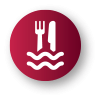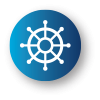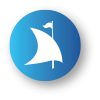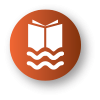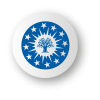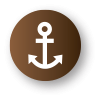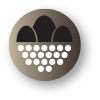Active Projects
The MUSE project – Development and valorization of port museums as natural and cultural heritage sites – is co-financed by the territorial cooperation program Interreg VA Greece-Italy. The partnership is composed by the Municipality of Tricase, CIHEAM Bari, the Municipality of Messolonghi, the Port Authority of Corfu and the European Regional Framework for Cooperation.
MUSE aims to develop and enhance the port areas of Tricase, Corfu and Messolonghi for an integrated and sustainable territorial development through the creation of a cross-border network of Adriatic-Ionian museum ports, in order to enhance the natural and cultural heritage and promote services and infrastructures for cultural, natural and scientific tourism.
Valuable sites of high artistic, cultural and natural value will be enhanced to encourage the development of sustainable and experiential tourism activities able to improve the competitiveness of the territories within the international tourism sector.
The Ports Museum will be built and / or enhanced also through the infrastructural and functional recovery of some artifacts present in the three areas, as well as through some soft actions for the recovery and systematization of the intangible heritage (traditions, stories, testimonies, recipes, ancient crafts, etc. .) linked to the sea and the coast.
In the Port Museum of Tricase is planned the recovery and modernization of the old “San Luigi” School to be used as a residence for arts and crafts and a new wing of the MARE Outpost, to be used as a conference room and training center.
The Co.Co.Tour project (Coastal Communities Tourism) – Safeguarding, enhancing and promoting the natural and cultural heritage of COastal COmmunities by boosting the eco-museum model aiming at smart and sustainable TOURism management – is co-funded by the Interreg IPA CBC program Italy-Albania-Montenegro and sees in partnership the Magna Grecia Mare Association and the City of Tricase, in Italy, the Albanian Development Fund and the Municipality of Himara, in Albania, the Municipality of Herceg Novi and the Local Democracy Agency / LDA, in Montenegro and the National Agency for Protected Areas-NAPA (Albania) as associated partner.
The project aims to ensure smart, inclusive and sustainable growth of coastal communities in the areas concerned through the development of a cross-border eco-museum model and a common strategy focused on community tourism.
Co.Co.Tour dedicates its attention not only to the creation and / or enhancement of three cross-border Ports Museum but, also and above all, to the accessibility of the same and their immense heritage, intangible at 360°, also through the creation and use of the most modern digital technologies.
In the Port Museum of Tricase, the infrastructural recovery of the ancient water tank of the port and the consequent enhancement of the historic San Nicola square will contribute to the achievement of the project objectives by creating a sort of access point able to invite guests to discover the valuable material and intangible heritage of the Port of Tricase.
The BLUE LAND project – Participatory model for the sustainable management of marine and coastal resources and for cross border habitats, biodiversity and ecosystem services safeguard – is co-funded by the territorial cooperation programme INTERREG IPA CBC ITALY-ALBANIA-MONTENEGRO, and sees in partnership the CIHEAM Bari, National Agency of Protected Area in Albania, Institute for Nature Conservation in Albania, Ministry of Agriculture and Rural Development in Montenegro, University of Montenegro and Cooperative Research Institute (ICR).
The BLUE LAND project aims to define and develop an innovative model of co-management of marine and coastal resources based on the direct involvement of local communities, both in the identification of development objectives and in the achievement of identified priorities.
BLUE LAND is a circumscribed stretch of sea and coast, where the local community is committed to directly manage natural resources, with the aim of ensuring their future sustainability.
The model, implemented in three pilot areas, Porto Palermo (Albania), Ada Bojana (Montenegro) and Tricase (Italy), is aimed at protecting and safeguarding marine and coastal resources, through an ecosystem approach that guarantees the continuity of the provision of Ecosystem Services, preserving habitats and biodiversity, also thanks to the support of an ICT platform (Web-GIS) for integrated coastal land planning and an App for community involvement in the monitoring of indicators related to the ecosystem services detected (citizen science approach).
The thematic project FOOD4HEALTH – Sustainable and innovative Agri-food and fisheries value chain for SME’s cross-border market – is co-financed by the territorial cooperation program Interreg IPA CBC Italy-Albania-Montenegro and sees in partnership the CIHEAM Bari, the Puglia Region and the Molise Region in Italy, the Albanian Ministry of Agriculture and Rural Development (Lead Partner), the Valona Agricultural Technology Transfer Center and the Korca Agricultural Technology Transfer Center in Albania, the Ministry of Agriculture and Rural Development and the Institute of Marine Biology in Montenegro.
The general objective of the project is to strengthen the competitiveness of SMEs in the cross-border area by improving production techniques and by transferring, sharing and adopting European quality standards for the transformation and improvement of typical and traditional products of the agri-food and fisheries sector, in order to facilitate market access.
In the Tricase area, the former municipal slaughterhouse will be recovered and renovated and will become one of the Food4Health Community Labs envisaged by the project, in which local Micro, Medium and Small businesses will put into practice the process and transformation techniques of their primary products, in accordance with the standards identified during the project’s intangible assets and compliant with EU regulations.
Funded under the INTERREG VA Italy-Croatia Program, Priority Axis 3 “Environment and Cultural Heritage”, Arca Adriatica brings together 10 Italian and Croatian partners who, starting from 1 January 2019 and for 30 months, will carry out a careful and detailed program of common activities, to structure, organize and transmit to potential tourists the complex of cultural heritage, traditions and craft skills related to maritime history and the coastal communities of the places affected by the project. The existing heritage – material and immaterial – will therefore be the subject of specific restoration, interpretation and enhancement measures, in order to develop and relaunch a common, unique and recognizable tourism product based on the principles of social and ecological sustainability.
CIHEAM-Bari will concentrate the project activities within the Port Museum of Tricase, where he is already engaged in action programs for the benefit of the coastal community.
The coordinator of the cross-border project is Primorje-Gorski Kotar County of Croatia, while the project partners of Croatia are the Municipality of Malinska; the Kvarner Tourist Board; the “Batana House” Ecomuseum; the Municipality of Tkon. The project partners in Italy are: the Municipality of Cervia; the Municipality of Cesenatico; the CIHEAM Bari; the Municipality of San Benedetto del Tronto; the Ca ‘Foscari University of Venice.
© 2020 Associazione Magna Grecia Mare P.IVA: IT03755890757 • Cookie & Privacy Policy





